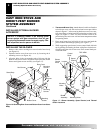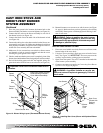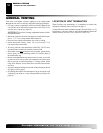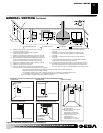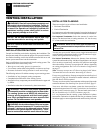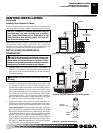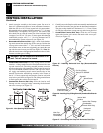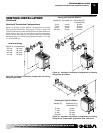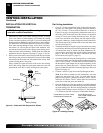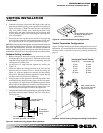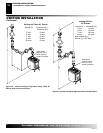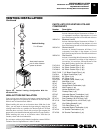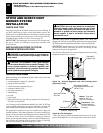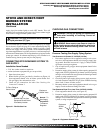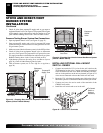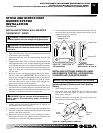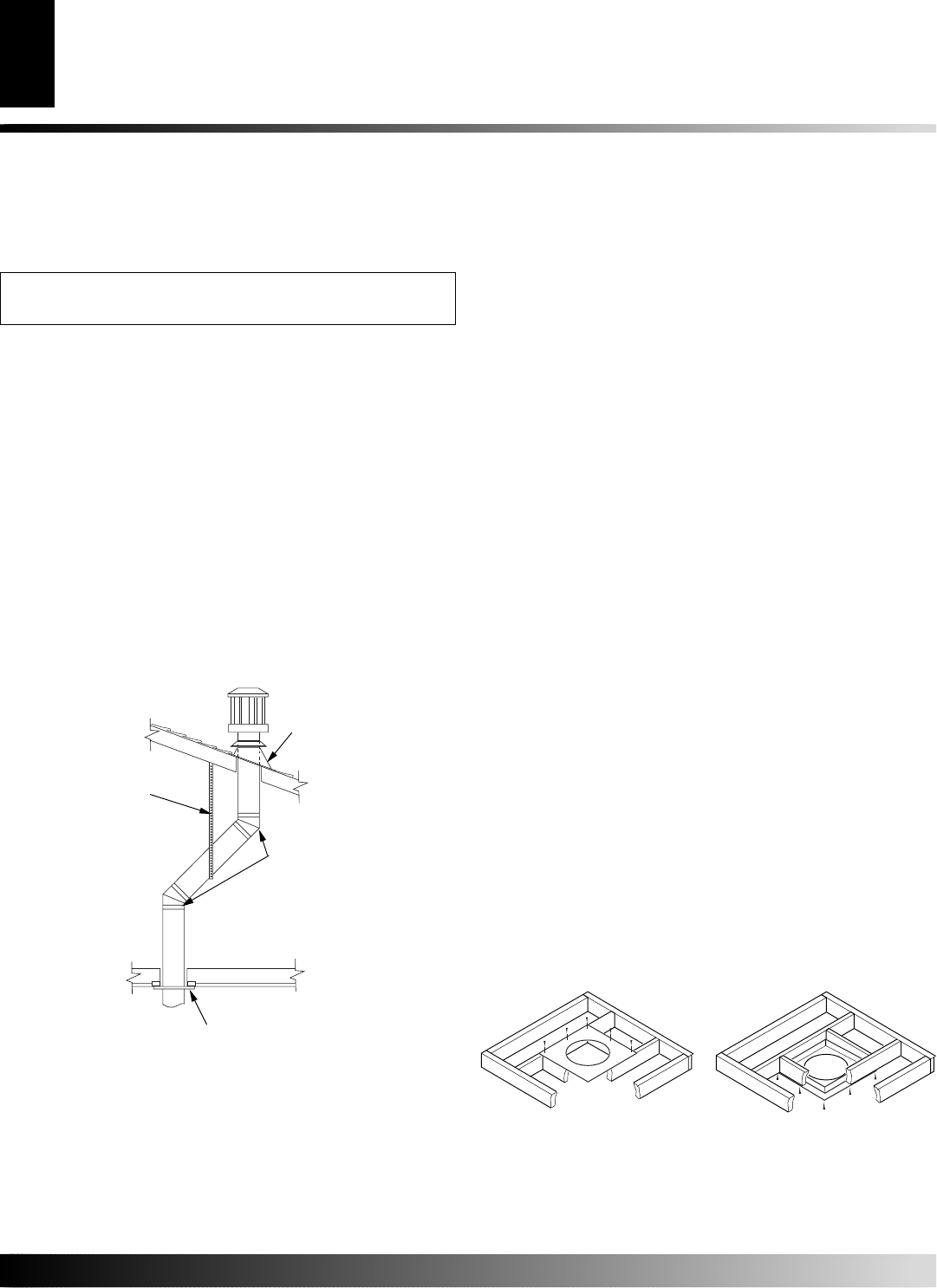
112126-01B
For more information, visit www.desatech.com
For more information, visit www.desatech.com
16
1. Determine the route your vertical venting will take. If ceiling
joists, roof rafters, or other framing will obstruct the venting
system, consider an offset (see Figure 31) to avoid cutting load
bearing members.
Note:
Pay special attention to these installa-
tion instructions for required clearances (air space) to combus-
tibles when passing through ceilings, walls, roofs, enclosures,
attic rafters, etc. Do not pack air spaces with insulation. Also
note maximum vertical rise of the venting system and any maxi-
mum horizontal offset limitations. Offsets must fall within the
parameters shown in Figures 35 through 37, pages 17 and 18.
2. Set the stove in desired location. Drop a plumb line down from
the ceiling to the position of the burner system exit flue. Mark
the center point where the vent will penetrate the ceiling. Drill
a small locating hole at this point.
Drop a plumb line from the inside of the roof to the locating
hole in the ceiling. Mark the center point where the vent will
penetrate the roof. Drill a small locating hole at this point.
Flat Ceiling Installation
1. Cut a 10" (25.4cm) square hole in the ceiling using the locat-
ing hole as a center point. The opening should be framed to
10"x10" (25.4cm x 25.4cm) inside dimensions, as shown in
Figure 24 on page 14 using framing lumber the same size as
the ceiling joists. If the area above the ceiling is an insulated
ceiling or a room, nail firestop from the top side. This pre-
vents loose insulation from falling into the required clear-
ance space. Otherwise, install firestop below the framed hole.
The firestop should be installed with no less than three nails
per side (see Figure 32).
2. Assemble the desired lengths of pipe and elbows necessary
to reach from the burner system flue up through the firestop.
All connections must be sealed with high temperature sili-
cone sealant as specified in the second warning statement on
page 12. Be sure all pipe and elbow connections are fully
twist-locked (see Figure 23, page 13).
3. Cut a hole in the roof using the locating hole as a center point.
(Cover any exposed open vent pipes before cutting hole in roof.)
The 10"x10" (25.4cm x 25.4cm) hole must be measured on
the horizontal; actual length may be larger depending on the
pitch of the roof. There must be a 1" clearance from the vent
pipe to combustible materials. Frame the opening as shown in
Figure 24 on page 14.
4. Connect a section of pipe and extend up through the hole.
Note:
If an offset is needed to avoid obstructions, you must
support the vent pipe every 3 feet. Use wall straps for this
purpose (see Figure 31). Whenever possible, use 45° elbows
instead of 90° elbows. The 45° elbow offers less restriction
to the flow of the flue gases and intake air.
5. Place the flashing over the pipe section(s) extending through
the roof. Secure the base of the flashing to the roof and fram-
ing with roofing nails. Be sure roofing material overlaps the
top edge of the flashing as shown in Figure 31. There must be
a 1" clearance from the vent pipe to combustible materials.
Figure 31 - Offset with Wall Strap and 45
°
Elbows
INSTALLATION FOR VERTICAL
TERMINATION
NOTICE: Use rigid pipe only. Flex venting is not to be
used with a vertical termination.
VENTING INSTALLATION
Continued
Figure 32 - Installing Firestop
If area above is not a
room, install firestop below
framed hole.
If area above is a room, install
firestop above framed hole.
45° Elbow
Wall Strap
Roof
Flashing
Ceiling Firestop
VENTING INSTALLATION
Installation for Vertical Termination



